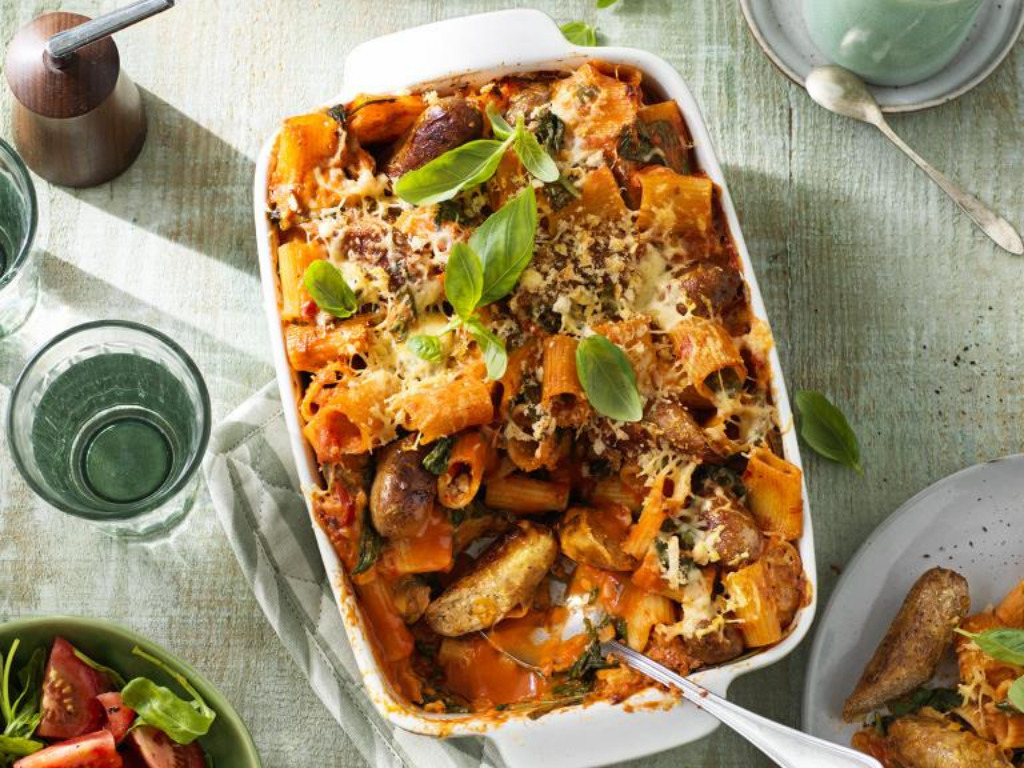3 Mins Read
Nestlé has revealed it will be opening a new production plant in Serbia. The $73 million facility is in progress, with the first phase of construction reportedly already complete. The new site will be 18,440 square metres and within easy distance of an existing location in Surčin.
Completion of the Serbian plant is projected for the end of this year. The site will be used solely for the production of Garden Gourmet lines, most of which will be exported to wide Europe. When fully operational, the facility is slated to have a capacity of 12,000 tonnes of product a year.

Taking plant-based production seriously
The new Serbian plant will employ a further 330 people. Currently, there are 550 housed in the existing headquarters and factory. The significant increase in personnel and investment into a new unit represents a shift in Nestlé’s priorities, in line with an uptick in sales last year.
It was reported that the conglomerate saw $860 million in plant-based sales, in 2021. Earlier this month it was revealed that Nestlé has partnered with Corbion to unlock the potential of microalgae as an addition to meat-free foods. A new production plant is another initiative to capitalise on this trend, alongside new strategic partnerships.
“We are building the most modern factory in accordance with green standards and opening the door for 330 new employees,” Marjana Davidović, general manager of South Adriatic Nestlé said in a statement. “We are expanding our network of local suppliers in order to continue to support the local economy. When Nestlé came to Serbia 17 years ago, it was clear that it was there to stay.”
Stable supply and new developments
Garden Gourmet products manufactured in the state-of-the-art facility have been confirmed for export to France, Germany, Italy, Spain and the Netherlands. The U.K. will see increased imports, despite already being supplied by a Czech Republic plant. The two facilities will work together to ensure a constant flow of plant-based goods into the U.K., with neither superseding the other. Serbia will benefit from domestic production thanks to retail and food service distribution currently in place.
Nestlé has been explicit in its admittance that plant-based food is a viable market, revealing “double-digit organic sales growth” figures for its meat-free options. Having started with simple freezer foods, the company quickly geared up for the development of more niche products. “I think, here, our foray into specialties has really paid off,” Mark Schneider, CEO of Nestlé said in a post-financial year debrief call in February. “So, we’re not just offering the plain straightforward products, such as burger patties and chicken pieces, but rather we go into specialties, just think about, for example, our tuna or shrimp plant-based alternatives.”

The new normal
Nestlé has been working hard to overcome image difficulties. In recent months it has committed $1.2 billion to regenerative farming and switching its supply chain to pay fair or premium rates for raw materials. Increasing its plant-based portfolio is another way it is looking to lighten its impact on the planet and improve its reputation. In May last year, Nestlé released Wunda, pea-based milk, representing its first foray into alt-dairy. It was developed in-house as part of the conglomerate’s R&D accelerator, taking just six months to be ready for commercial launch.
Nestlé is not alone in recognising plant-based eating as a way to garner a legion of new fans. Recently, Unilever published findings that proclaimed plant-based diets as the healthiest option for the planet and people. It came despite an extensive portfolio of non-plant-based products already in production. Additionally, Unilever has just announced its intention to publicly report on its products performances against six government-endorsed Nutrient Profile Models. It will be the first company of its size and influence to do so.
All photos by Nestlé/Garden Gourmet.




